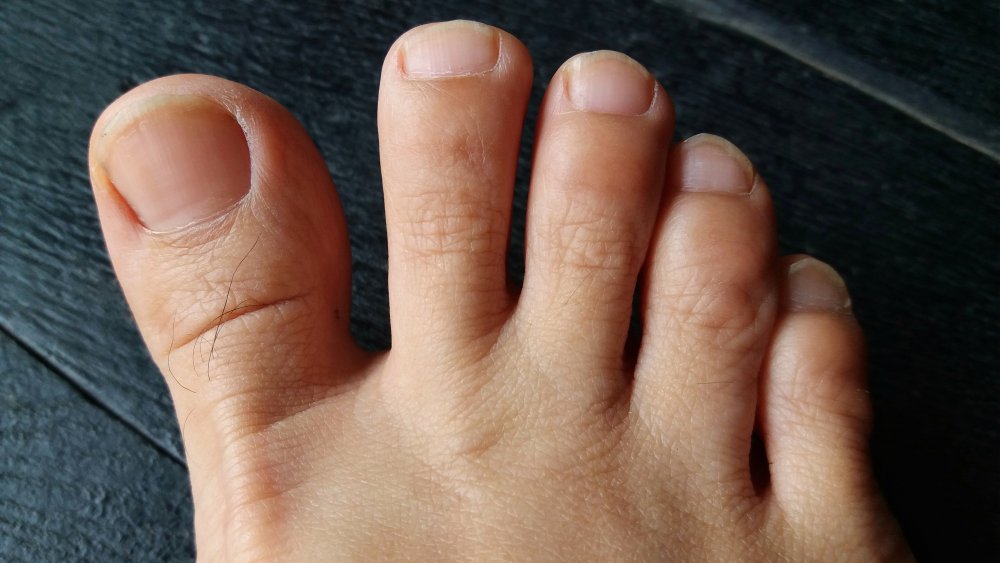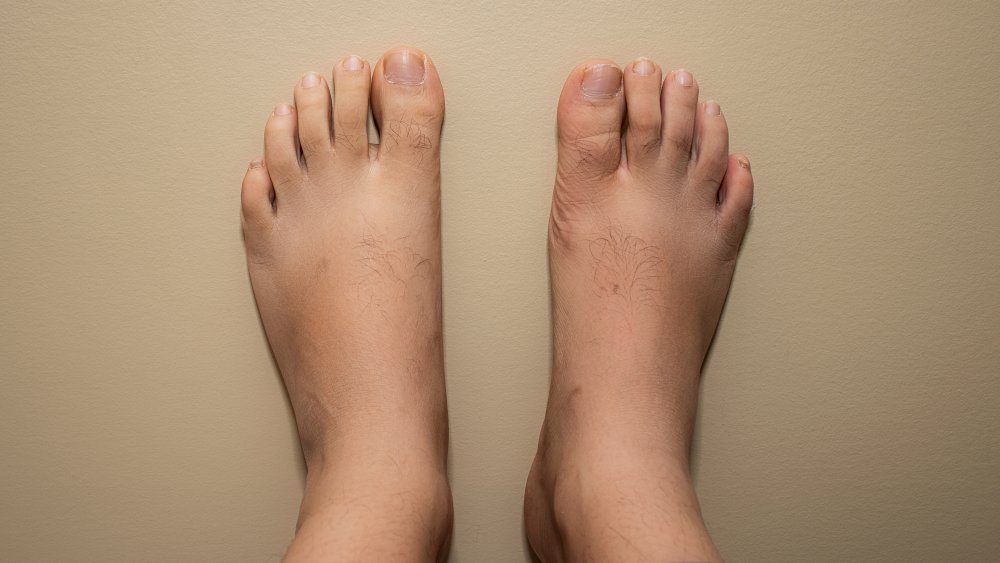This Is How The Ho No Hana Cult Started
In May 1996, Bill Clinton was courting donors, laying the basis for the largely forgotten 1996 United States campaign finance controversy, which suggested that the People's Republic of China was trying to influence American politics. A footnote of this footnote included Mahatma Ghandi's distant relative Yogesh Ghandi who, according to World Magazine, paid $325,000 for his ticket and his friend Japanese Dr. Hogen Fukunaga, "[the] leader of a Japanese religious sect known as Ho no Hana Sanpogyo" and a millionaire, for a fundraising dinner at the Sheraton Carlton Hotel in Washington D.C. This forgotten oddity marked the high point for Fukunaga and the Ho No Hana before falling to charges of fraud.
According to the BBC's reportage, Hogen Fukunaga, whose real name is Teruyoshi Fukunaga, started off as an electrician, who in 1987 realized that he was the reincarnation of both Jesus Christ and the Buddha. He started a cult. Apologetics Index, a research compendium of resources on cults, sects, new religious movements, and alternative religions, describes the basic — spoiler — scam: "In a twist on palm reading, Fukunaga and other cult leaders read the soles of people's feet. Upon examination, victims are told they have a serious illness or will suffer misfortune. They are then urged to attend expensive training sessions, and to purchase high-priced scrolls and other ornaments that are said to ward off evil, cure illnesses, deliver from sin, and break family curses." The prices of these scrolls easily reached tens of thousands of dollars.
Victims stories
By 1999, Hogen Fukunaga faced charges of fraud on multiple fronts. A contemporary account in Mainichi Shimbun described how a man in his 60s contacted the Ho No Hana because he was worried about the possibility he contracted HIV. At the office, Fukunaga examined the man's feet: "Your life is bad in the past, present and the future." He then assured the man the doctor would diagnose him with AIDs.
For slightly above $6,000, however, the man could take part in a session to aid him. He did. Fukunaga then declared that he no longer sensed AIDs in the man, presumably after close inspection of his feet. So, the members decided, the man had to take home a scroll, for which they charged just under $34,000. He did this as well. Afterwards, he filed a lawsuit with Shizuoka District Court, demanding reparations of about $50,000.
Another disturbing report that Kyodo News Services aired on December 2, 1999, informing the reader that four members of the Ho No Hana cult died during training. Details about how they died are lacking except for one reference to defenestration: "Sources said the family of the Iwata man plans to file a suit shortly with the Shizuoka District Court against the cult for 55 million yen [about $560,000] in damages, claiming the man fell to his death from the window of a second-floor bathroom during a five-day training session." Apparently, the Fuji fire department had responded to 12 such calls over five years.
Footing the bill
"All I did was deliver the 'vox dei,' (voice of God)," Fukunaga complained to The Yomiuri Shimbun in 2000. "Why is it called fraud?" The court disagreed. The Japan Times described how the presiding judge vehemently disagreed with Fukunaga's defense that the court was infringing on his freedom of religion: "[The] judge ruled that the acts of Fukunaga and his cohorts were 'nothing but fraud' and deviated from the range of things that could be condoned in the name of freedom of religion. '(Fukunaga) wielded power as the leader of the cult and promoted systematic fraud. He is the mastermind of the crimes,' the judge said." The judge proceeded to hand Fukunaga a 12 year sentence for conning his followers out of just under $1.5 million. By this point, 15 others were also charged, with 13 of them already convicted. The cult itself had to pay $926,000 to 16 people who said they were told they'd develop cancer unless they joined.
The Chicago Tribune's coverage of the Ho No Hana scandal included a brief section explaining why the Japanese seemed to ready to believe in these predatory cults. For generations, society had assumed that their jobs and their economic security would last. Japan suffered a massive recession in the mid-1990s, causing large numbers to search for spiritual guidance. The worst of these transformed into doomsday cults that killed people, making the Ho No Hana fraud sound relatively benign.
Fukunaga has not been heard from since.


